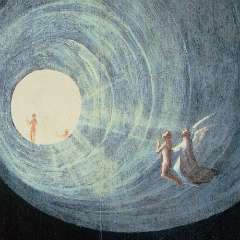
There have been several very successful books on heaven in recent years, including Heaven is For Real, published at Thomas Nelson by my colleague Matt Baugher.
The interest among readers is reasonable enough, considering that we’re talking about our eternal destinies and all the hopes and fears that go along with them. Not a small topic.
But let’s expand the conversation. Heaven is more than an endpoint. When Christians pray the Lord’s Prayer we ask that God’s will would be done on earth as it is in heaven — that is, to make this world heavenly, to make ourselves heavenly. This this part of what Christ is getting at when he says that the kingdom of heaven is within us.
It’s a potential reality here and now.
Becoming heavenly
“If then we also are near to God [in this life, on this earth], we are in heaven,” said John Chrysostom. “For what care I about heaven when I see the Lord of heaven, when I myself have become a heaven? For, He says, We will come, I and the Father, and will make our abode with him [John 14.23]. Let us then make our soul a heaven” (Homilies on Hebrews 16.7).
Chrysostom said one aspect of this is to “withdraw ourselves from the earth,” but if you’ve read his homilies on the responsibilities of the rich toward the poor or other such works, it is clear that he was not advocating escapism here. Rather, he was referring to temptations and those sins and failings that hold us down. Chrysostom would have us “make our soul a heaven” by making no room in our hearts for hell.
Gregory the Great echoed this thought and elaborated on the obstacles and distractions we face in doing this:
Let no adversity turn us away . . . for when any one has resolved to go to a determined place, whatever the roughness of the way, it does not alter his desire. Let no smiling good fortune entice us away; for he is a foolish traveler who, beholding on his way a pleasant meadow, forgets to go on in the way he was going. . . . Let us grasp at nothing in this world; for well we know that it will quickly let go.
Love bridges the gap
What is the key to staying the course, to drawing heaven near as we make our way toward it? Gregory said it is love.
“Let our desires grow eager for the things of heaven,” he said, “and thus to love is already to go there” (“The Unfading Pastures: The Christian Hope,” The Sunday Sermons of the Great Fathers). To love is to cross the borderlands of heaven. To love is to traverse the infinite gulf in a moment.
First and foremost, this is love of God, seeking his kingdom before all others. Second, this is love of neighbor. To cherish God while disdaining others is delusional. It exposes our affection as false and self-serving. If we work to demonstrate this true sort of love, this love for God and neighbor, then we will draw heaven close to where we labor. We will, as the Serbian monk Elder Thaddeus said, spread its very atmosphere on earth.
What will it take for us to become the answer to our own petition, “[T]hy will be done on earth as in heaven”?
Elsewhere
Frank Viola talks about getting radical.














